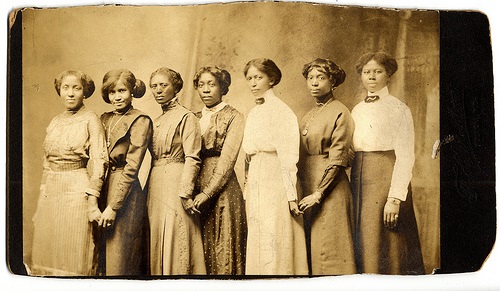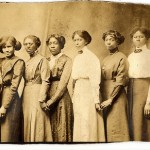African American Influence on U.S. Government
As February winds down, let’s remember that the celebration of African American influence does not have to end. In honor of this, we will take a look at some of the ways that we have influenced our nation’s government.
The United States Constitution
I have heard that the enslavement of African people in America is our greatest shame. As this form of dominance came to an end, it left open areas that needed to be protected and addressed in this nation. Impressively, acknowledgement and action on these issues influenced the amendment of The United States Constitution as follows:
13th Amendment (1865) – This is the big amendment that abolished slavery and involuntary servitude, except as a punishment for a crime. When discussing this with students (especially older students), I would encourage you to bring out the argument that the high percentage of incarcerated minorities (especially black males) is a way to legally maintain free labor and oppression. I recommend reading Just Mercy: A Story of Justice and Redemption by Bryan Stevenson (2015) for additional exploration on this topic. With younger students, be prepared to discuss the differences between slavery and servitude vs. chores and community contributions.
14th Amendment (1868) – Upon return from battle in the Civil War, African Americans found that there were no to minimal differences in their societal rights. These issues led to the 14th Amendment of the U.S. Constitution. This Reconstruction Amendment protected citizens rights and equal protection under the law. Although bitterly contested, it continues to stand and was the foundation for landmark decisions such as Brown v. Board of Education (1954, segregation and education), Roe v. Wade (1973, abortion), Bush v. Gore (2000, presidential election) and Obergefell v. Hodges (2015, same-sex marriage).
15th (1870) and 19th (1920) Amendments – The 15th and 19th Amendments were also Reconstruction Amendments. They are addressed together because they are closely related. The 15th Amendment stated the government can not deny a citizen the right to vote based on race, color, or previous condition of servitude. The 19th Amendment added that citizens can not be denied the right to vote based on sex. This amendment came about as a result of The Women’s Suffrage Movement. It is interesting to note that it took 41 years for the 19th Amendment to be ratified. This can lead to another level of conversation about Women’s rights, position, power and voice in this nation.
24th Amendment (1964) – The 24th Amendment also addressed voting by declaring the right to vote in federal elections could not be conditioned upon the payment of a poll tax. This directly addressed barriers placed upon African Americans and poor Whites to keep them from voting (specifically in the South).
African American Influence on Federal Bureaucracy
Bureau of Refugees, Freedmen, and Abandoned Lands – This agency comes out of the U.S. Department of War as a way to provide a level of relief and support to newly freed slaves after the Civil War. Initiated by President Abraham Lincoln, this agency is still important to the care and support of refugees entering this country.
Fair Employment Practice Committee – Initiated by President Roosevelt before WWII to ensure a workforce on the homefront, this opened up opportunities for advanced skill training and higher wages for African Americans.
Civil Rights Commission – Responsible for investigating, reporting on, and making recommendations on civil rights issues.
U.S. Department of Justice, Civil Rights Division – Enforces the statutes that prohibit discrimination based on sex, religion, race, disability, and national origin.
Equal Employment Opportunity Commission – Administers and enforces civil rights laws in the workplace.
Head Start – Provides early education and intervention services to low-income families including nutrition, health, and parental support services.
Note: Information and resources on these topics can be found on the Internet.










Comments 2
hoi
i am first in this web